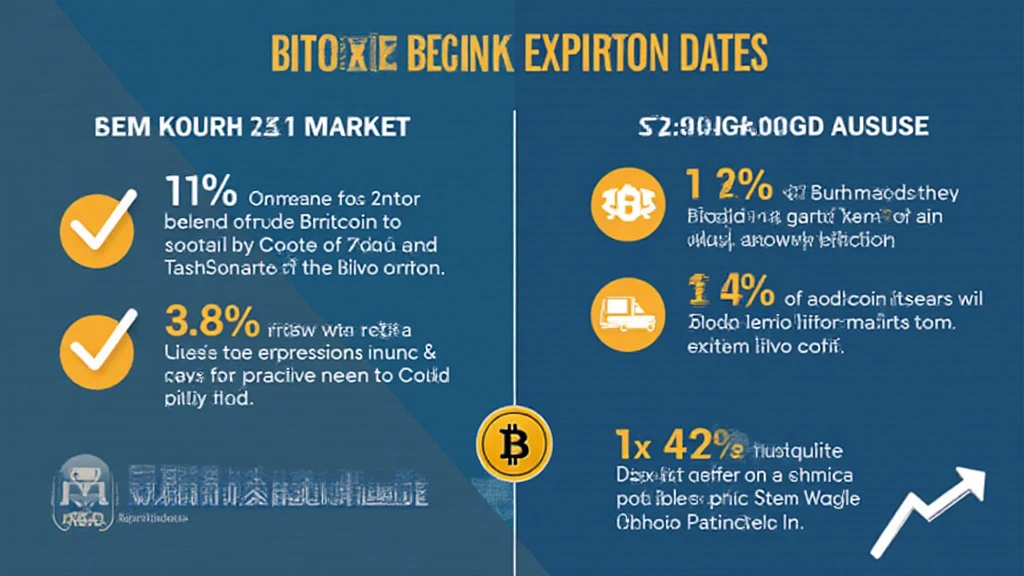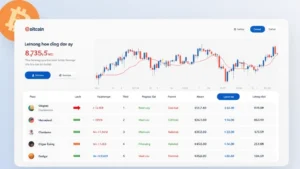Introduction
In recent years, the cryptocurrency market has witnessed unprecedented growth, with Bitcoin leading the charge. With an estimated market cap of more than $900 billion, Bitcoin remains a highly traded asset. However, as more investors dive into this digital gold, they often ask: What are Bitcoin futures expiration dates, and how do they affect market movements? In this article, we will explore this important topic, providing insights and analysis that can help you navigate the complexities of futures trading.
With over $4.1 billion lost to various hacks in the DeFi realm, understanding Bitcoin futures can significantly impact your trading strategy.
What Are Bitcoin Futures?
Bitcoin futures are financial derivatives that allow traders to speculate on the future price of Bitcoin. They essentially enable investors to buy or sell Bitcoin at a predetermined price that will be settled at a future date. These contracts can help mitigate the risk of price volatility while offering opportunities for profit.

For example, if a trader believes that Bitcoin will rise in price, they can purchase a Bitcoin futures contract. If the price does indeed rise by the time the contract expires, the trader will profit from this agreement.
The Importance of Expiration Dates
Every Bitcoin futures contract comes with a set expiration date. On this date, the contract is settled, and the profit or loss is realized. Understanding these expiration dates is crucial for a couple of reasons:
- Price Manipulation: Around expiration dates, significant price volatility often occurs due to traders closing positions or rolling over contracts. This could potentially lead to manipulated pricing.
- Liquidity Risk: As the expiration date approaches, liquidity tends to shift. Traders should be cautious as this can influence their ability to execute trades at favorable prices.
The Timeline of Bitcoin Futures Expiration
Typically, Bitcoin futures contracts expire quarterly, with notable dates often falling on the last Friday of March, June, September, and December. Understanding these expiration cycles can significantly aid traders in their decision-making. But the critical question is: how should you approach trading as these dates approach?
Strategies for Trading Around Expiration Dates
1. **Watch for Price Trends:** Many traders believe that prices could often drop before contracts expire, as traders will seek to exit positions. Monitoring these trends can aid in informed decision-making.
2. **Utilize Market Sentiment:** Market sentiment can swing dramatically as expiration dates near. Utilizing crypto sentiment analysis tools could help gauge when to enter or exit a trade.
3. **Options Strategies:** Certain advanced traders utilize options strategies to hedge risks going into the expiration date.
Case Studies of Major Expiration Dates
Historically, some expiration dates have lead to significant price shifts. For instance, during the expiration of multiple contracts in June 2021, Bitcoin saw volatility that led to a sharp price decrease. According to a report by Chainalysis, these occurrences often result in a decrease in Bitcoin’s price temporarily due to trading pressures.
Impact on Market Dynamics
The impact of futures expiration on market dynamics cannot be underestimated. Often termed as “futures roll-off,” the day before expiration sees heavy trading volume, with many traders moving contracts or selling their positions.
Understanding the Global Landscape
In Vietnam, the interest in Bitcoin trading is growing rapidly, with a user growth rate of over 35% in the past year. This means more Vietnamese investors are looking at Bitcoin futures as potential options for investment. Understanding how global events, including Bitcoin futures expiration dates, can impact local markets is essential for effective trading strategies.
Moreover, in the context of blockchain, ensuring security is paramount. The emerging phrase tiêu chuẩn an ninh blockchain reflects the importance of maintaining security through robust trading practices.
Future Considerations
Going forward, as the cryptocurrency ecosystem continues to evolve, the lengthening of contract duration and the introduction of innovative financial instruments will shape how futures are traded. For instance, traders should stay aware of regulations to keep their trades compliant.
Conclusion
In conclusion, Bitcoin futures expiration dates play a crucial role in the cryptocurrency market. Understanding these dynamics can equip traders with knowledge that helps them navigate the volatility that often accompanying these dates. Whether you’re in the Vietnamese market or trading elsewhere, keep an eye on the expiration dates and utilize strategies that can capitalize on price fluctuations.
Equipped with this information, you’re well-positioned to make informed trading decisions around Bitcoin futures. Always remember—staying informed is key; after all, the market waits for no one.
For more guidance on Bitcoin futures and trading strategies, don’t hesitate to check out bitcoincashblender.
About the Author
John Doe, a leading blockchain consultant, has published over 15 papers in the field of cryptocurrency and has spearheaded audits for several high-profile projects, focusing on market dynamics and futures trading strategies.












